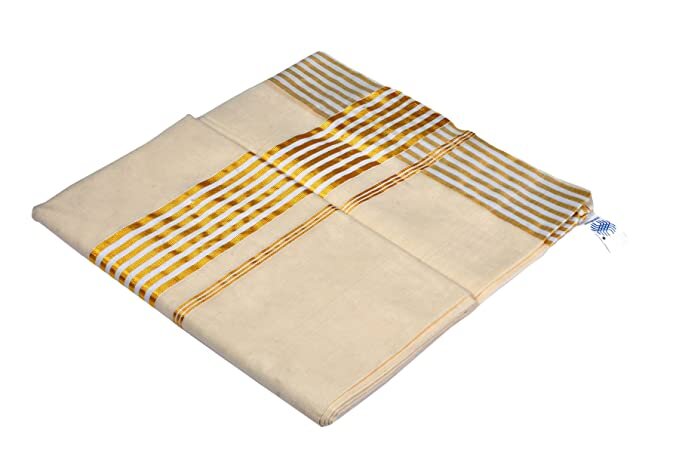Chendamangalam Saree: Kerala | 21 Sep 2020
Why in News
The Care 4 Chendamangalam (C4C) initiative is supporting the 2018 Kerala flood-affected weavers.
Key Points
- Kerala Kasavu Sarees: The term kasavu refers to the zari (gold thread) used in the border of the Kerala saree. The identity of the saree comes from the geographical cluster they are associated with.
- Geographical Clusters: The Indian government has identified three clusters in Kerala - Balaramapuram, Chendamangalam and Kuthampully - that have been given a Geographical Indication (GI) tag.
- Chendamangalam Saree:

- Features:
- It is recognisable by its puliyilakara border, a thin black line that runs side by side with the sari’s selvedge.
- It has extra-weft chuttikara and stripes and checks of varying width.
- History:
- It is widely believed that weaving in Chedamangalam was introduced by the Paliam family.
- Called the Paliath Achans, the family was hereditary to the prime minister post to the Maharaja of Cochin, having been associated with Chendamangalam from the 16th century onwards.
- Features:
- Other GI Tagged Products from Kerala: Kasaragod Sarees, Pokkali Rice, Nilambur Teak, Wayanad Robusta Coffee, Tirur Betel Leaf, etc.
Geographical Indication
- GI is an indication used to identify goods having special characteristics originating from a definite geographical territory.
- The Geographical Indications of Goods (Registration and Protection) Act, 1999 seeks to provide for the registration and better protection of geographical indications relating to goods in India.
- The Act is administered by the Controller General of Patents, Designs and TradeMarks- who is the Registrar of Geographical Indications.
- The Geographical Indications Registry is located at Chennai.
- The registration of a geographical indication is valid for a period of 10 years. It can be renewed from time to time for a further period of 10 years each.
- It is also a part of the World Trade Organisation’s Trade-Related Aspects of Intellectual Property Rights (TRIPS).
